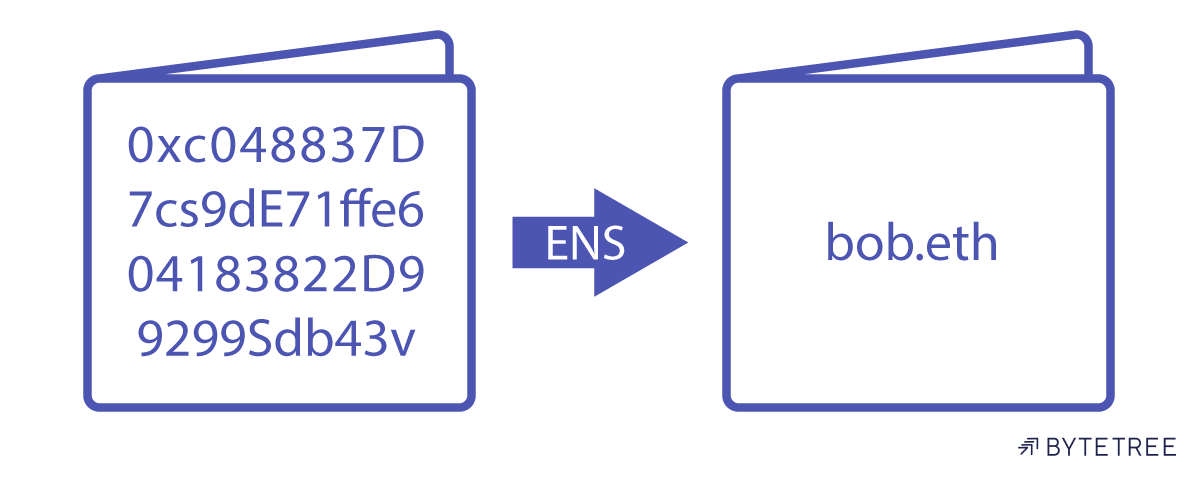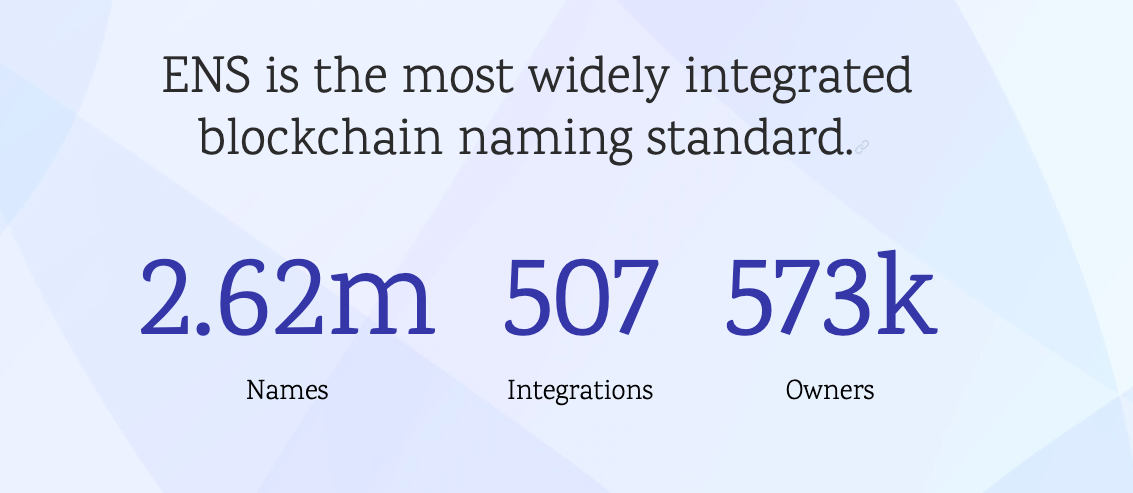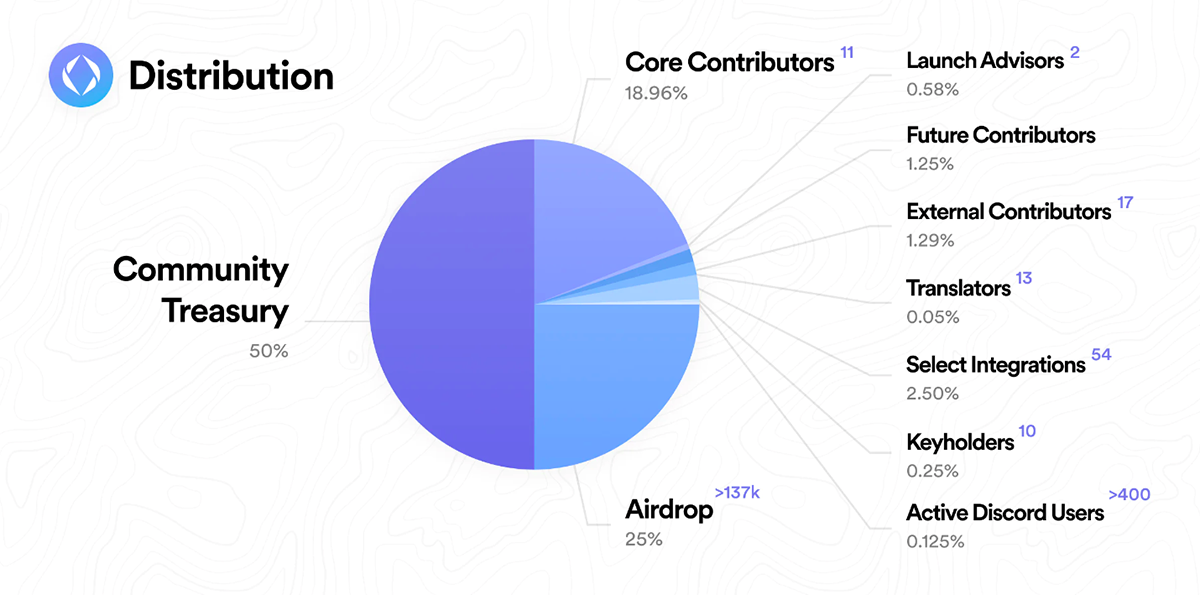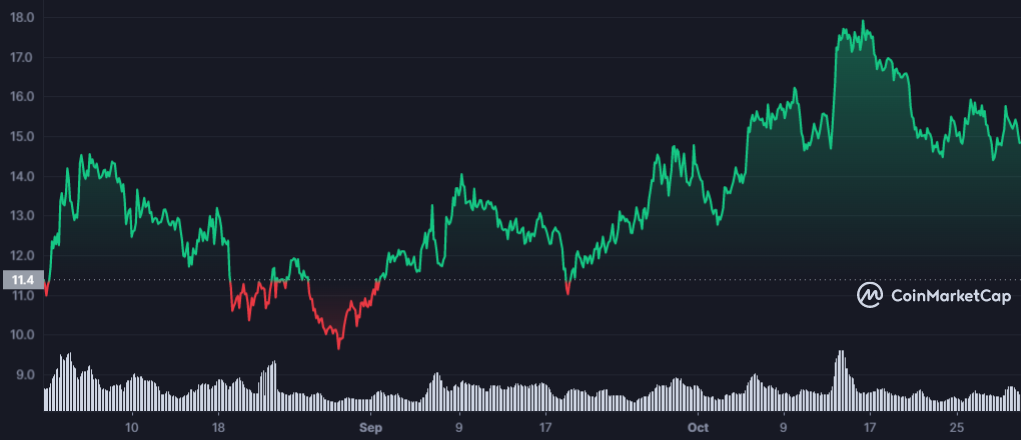Ethereum Name Service: Web3 Address Simplification

Disclaimer: Your capital is at risk. This is not investment advice.
Token Takeaway: ENS;
If you’ve ever transferred crypto from one wallet to another, you would have come across a wallet address. While these strings of letters and numbers are a secure way to identify unique wallets, they are not very user-friendly - a single typo could ensure that your funds are never coming back. One project trying to solve this problem is Ethereum Name Service (ENS). This Token Takeaway will review ENS, asking whether it will become the new norm for identifying user wallets.
DNS - The Precursor to ENS
Ethereum Name Service was founded in 2017 by the ENS Foundation, a non-profit organisation based in the Cayman Islands. ENS is an open-source protocol created to make crypto infrastructure more user-friendly and boost adoption.
Before we explain how the Ethereum Name Service works, we first need to explore why obfuscated crypto addresses became the norm.
It all stems back to the infrastructure behind the internet, where all users, knowingly or unknowingly, access it through a Domain Name Service (DNS). DNS is a naming protocol that translates internet domain names into Internet Protocol addresses (IP). So instead of typing 8.8.8.8 into your web browser, you would type “google.com”. When you hit enter, the request is sent to a server, which behind the scenes, converts “google.com” to the corresponding IP address (8.8.8.8), which the computer can read.

In a similar fashion to DNS, ENS is a decentralised naming service on the Ethereum blockchain that converts typical crypto wallet addresses into a short and snappy .eth address. The example below illustrates how a wallet address is remapped to a more human-readable name when using ENS.

Not only is bob.eth easier to read and memorise, but it also reduces the risk of typos. So far, it has proven a rather effective way of lowering the entry barrier for new crypto users.

Based on the data available, ENS has attracted over half a million unique owners who have registered over 2.6 million names.
How to Register an ENS Name?
Registering an ENS address is pretty straightforward and only requires two things. Firstly, the user needs to have access to a hot wallet, such as Metamask or Trust Wallet, and secondly, some ETH is needed to process and register the selected name.
When the criteria are met, users can visit the ENS app and type in the address they want to register. The app will guide the user through the registration process, which takes approximately 5 minutes, depending on the congestion on the Ethereum Network at the time.
All ENS addresses expire on a yearly basis. Renewals have a yearly cost of $5 for addresses that are five characters or longer, $160 for four-character names, and $640 for three-character names. All renewal fees are paid in ETH, using the exchange rate set by Chainlink’s ETH/USD oracle.
The ENS Foundation
ENS is run by the ENS Foundation, which has three directors, Nick Johnson, Brantly Millegan, and Kevin Gaspar, who are also part of the ENS core team and oversee the day-to-day operations. To ensure the directors are suitable and capable in their respective job roles, the Foundation hires one supervisor, which is currently filled by a Cayman Islands firm, DS Limited.
The Foundation operates as a Decentralised Autonomous Organisation (DAO), and ENS token holders are eligible to vote in the DAO. The ETH collected from the registration and renewal of ENS names are sent to the ENS Foundation wallet. With one vote per token, DAO members can then vote on how to best use the ETH collected. If a user wants to submit a proposal to the ENS community, 100,000 ENS tokens are needed for the proposal to go ahead to community voting.
While the Foundation is governed by its DAO, it also serves as a legal entity for the DAO in the real world. This means that the Foundation can provide limited liability to DAO participants for the actions of the DAO, comply with taxations and regulations, and form and enter into contracts with other organisations.
Tokenomics and Distribution
The ENS token was airdropped to ENS address holders in November 2021, equalling 25% of the overall supply. A further 25% was distributed among the core and supplementary contributors, and the remaining 50% was allocated to the DAO’s community treasury.

The circulating supply of ENS is approximately 20.24 million tokens, with a max supply capped at 100 million. This makes the current circulating supply quite low at only 20%, which is due to the vesting periods set for early ENS supporters and the ENS allocated in the community treasury. At the time of publication, ENS has a market cap of approximately $300 million and ranks within the top 120 crypto assets by market cap.


The ENS token saw bullish price action in September and October, which correlates to the increasing number of ENS name registrations and renewals in September 2022. The surge can be attributed to the current testing of a new smart contract called the ENS Name Wrapper, which allows existing ENS names to be converted into ERC-1155 tokens. The benefit of this update is that it enables the parent domain holders to create subdomains. Referring to our previous example of bob.eth, the update will allow the creation of subdomains such as user1.bob.eth, which can be lent out to other users.
The Competition
It is difficult to assess the value proposition of ENS without comparing it with its primary competitor, Unstoppable Domains (UD). UD is a for-profit company located in San Francisco and, like ENS, allows users to create human-readable URLs to replace long wallet addresses. However, the key difference here is that UD isn’t limited to a specific top-level domain, like .eth, but offers a variety of extensions, such as .crypto, .blockchain, and .dao. There are of course other differences between the two, which I’ve highlighted in the table below.
| Features | Unstoppable Domains | Ethereum Name Service |
| Multiple Domains Supported | Yes | No |
| Centralised Service | Yes | No |
| Permissionless Protocol | No | Yes |
| Native Token | No | Yes |
| Annual Registration Fees | No | Yes |
Source: ENS and Unstoppable Domains. Comparison between ENS and Unstoppable Domains.
Some benefits to registering domain names with UD are no renewal fees, and customers can pay for domain names using cryptocurrencies as well as fiat currencies, which is not an option on ENS. Additionally, the UD domain names are multi-chain compatible, users can receive over 290 supported cryptocurrencies, and they can create websites using their address with UD’s pre-made templates.

According to the stats available, over 2.7 million domains have been registered on UD with over 550 integrations. This makes the market share between ENS and UD an even split. But it is worth noting that ENS only operates with .eth addresses, while UD is not limited to a particular top-level domain.
In the long term, one factor that might hinder the growth of UD is the centralised nature of the organisation, which goes against the values and ethos of Web3 services. UD has previously faced some criticism for reserving the rights of well-known domains connected to famous people and corporations to prevent domain squatting. At the time of publication, UD does not have its own native token.
Conclusion
The move into using user-friendly crypto addresses is a very logical step for the space. Just like we don’t use IP addresses to visit websites, we can see ENS, and similar protocols, becoming the new norm for identifying user wallets going forward. Unlike many other crypto projects, ENS solves a very real-world problem that crypto users face, which is an important step to further boost adoption.
However, on the flip side, the ENS token utility is very limited as its main function is to act as a governance token to shape the protocol. But that said, unlike other DAOs, ENS has a steady stream of income through its name registrations and renewal fees, making Ethereum Name Service and its native token hard to ignore.

Comments ()